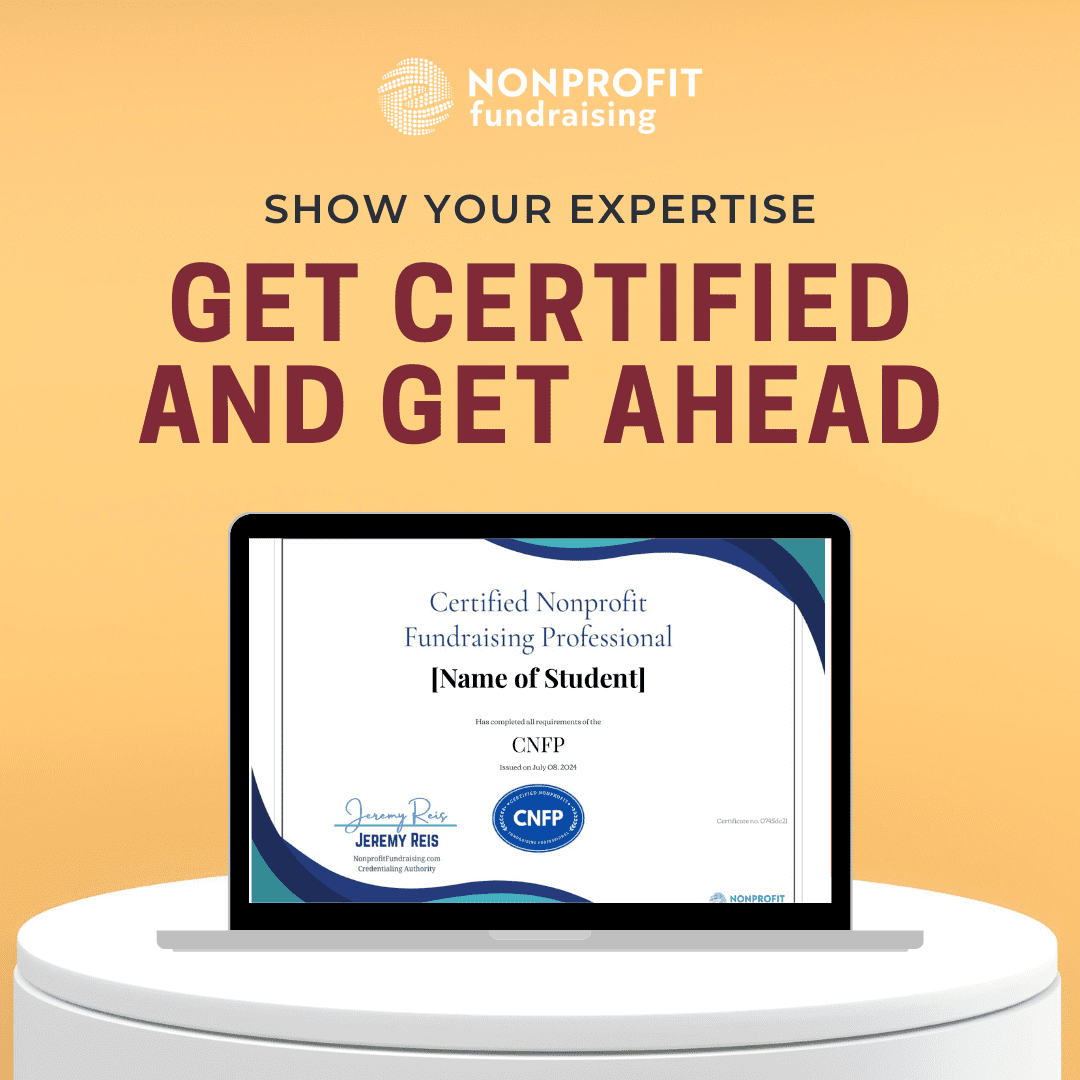The average tenure of a development professional is alarmingly short, averaging just 16 months. This trend poses significant challenges for nonprofits, impacting their fundraising continuity, donor relationships, and overall organizational stability.
In this trend, we explore the multifaceted reasons behind this high turnover rate in fundraising roles. Factors such as excessive workload, unrealistic fundraising targets, lack of support from leadership, insufficient resources, and the emotional toll of constant engagement and solicitation contribute to burnout and job dissatisfaction. Additionally, the competitive nature of the sector often leads to poaching of talented professionals, further exacerbating the turnover problem.
Understanding the root causes of this turnover is crucial for nonprofits aiming to address and mitigate its impact. As we navigate through Trend 24, we’ll provide insights into the strategies and practices that can help organizations retain their valuable development staff, foster a supportive work environment, and ultimately create a more stable and effective fundraising operation. Recognizing and tackling the issue of high turnover in fundraising roles is essential for the sustainability and success of nonprofits in fulfilling their missions.
Unrealistic Expectations and Workload
One of the primary reasons for high turnover in development roles is the set of unrealistic expectations often placed on fundraising professionals. Many are tasked with ambitious fundraising targets without the necessary resources or support. This imbalance can lead to a relentless workload, with development staff feeling the constant pressure to perform. The stress of meeting these high expectations, often with limited budget or personnel, can quickly lead to burnout, prompting individuals to seek relief by moving to other organizations or leaving the sector entirely.
Lack of Support and Recognition
Development professionals frequently face a lack of understanding and support from their organization’s leadership and other departments. The unique challenges of fundraising are often underestimated, leading to a lack of recognition for the hard work and success of development teams. Without a supportive work environment that acknowledges their efforts and addresses their professional needs, development staff can feel undervalued and disheartened, fueling the desire to find a more appreciative and supportive workplace.
Limited Opportunities for Career Advancement
Many development professionals find themselves in a career standstill, with limited opportunities for growth or advancement within their organizations. The absence of clear career pathways or professional development opportunities can make the role feel stagnant. This lack of progression can drive development staff to seek advancement through external opportunities, contributing to the high turnover rate.
Emotional Toll and Donor Fatigue
Fundraising is inherently relational and often emotionally taxing. Development professionals invest significant emotional labor in building and maintaining donor relationships. The constant pressure to engage donors, coupled with the need to navigate the emotional highs and lows of fundraising campaigns, can take a considerable toll on an individual’s well-being. Over time, this emotional burden can lead to donor fatigue, making the role unsustainable for many.
Competitive Market and Poaching
The nonprofit sector is highly competitive, and talented development professionals are in high demand. Organizations often resort to poaching staff from other nonprofits, offering better compensation, benefits, or work conditions. This competitive market creates an environment where development professionals are frequently presented with tempting offers from other organizations, leading to a higher turnover as individuals seek to improve their professional circumstances.
Addressing these factors is crucial for nonprofits planning to reduce turnover in development roles. By setting realistic expectations, providing ample support and recognition, offering clear career advancement opportunities, acknowledging the emotional aspects of the role, and creating a competitive and attractive work environment, organizations can foster loyalty and retain their valuable development staff.
How Does Your Nonprofit Retain Your Fundraising Staff?
“Nonprofit organizations may look at the laundry list that is encouraged in retaining talent and feel paralysis. Is each one warranted?” asked Brooke Hodnefield, VP Nonprofit for Slingshot Group. “Absolutely yes. But what is your organization’s low-hanging fruit? If it can be prioritized by what your organization is already postured to do well…start there! Small, incremental changes with a recognition that ‘we can and should do better,’ as well as an authentic effort that is owned by leadership, can be a solid first step in the right direction. Just also consider that once you’ve declared it, you will be held accountable. What will take your retention in the opposite direction is to declare it and do nothing. Start small and sustain.”
Fostering a Culture of Appreciation and Support
To retain fundraising staff, nonprofits must cultivate a work environment that values and supports its employees. Recognizing the hard work and achievements of fundraising professionals, both publicly and privately, can boost morale and job satisfaction. Regularly acknowledging their contributions and offering constructive feedback creates a positive work culture where staff feel valued and motivated.
Ensuring Realistic Goals and Work-Life Balance
Setting achievable fundraising targets and respecting the need for a healthy work-life balance are essential in retaining staff. Unrealistic expectations can lead to stress and burnout, so it’s important to set goals that are challenging yet attainable, based on accurate data and the resources available. Encouraging staff to take time off and providing flexible work arrangements can also contribute to a more balanced and sustainable work environment.
Investing in Career Growth and Learning
Providing opportunities for professional development is key to retaining fundraising staff. Employees should have access to training, workshops, and conferences that can enhance their skills and knowledge. Establishing clear career pathways within the organization can also give staff a sense of direction and purpose, making them more likely to stay and grow with the nonprofit.
Enhancing Compensation and Benefits
Offering competitive salaries and comprehensive benefits is crucial in a competitive job market. Regularly review and adjust compensation packages to ensure they align with industry standards. Additionally, offering benefits like health insurance, retirement plans, and wellness programs can make your organization a more attractive and supportive place to work.
Encouraging Open Dialogue and Feedback
“As a leader within an organization, what is a powerful retention tool?” asked Brooke Hodnefield. “Truly listening and affirming what you’ve heard by what you say and what you do. When you invest in others…not just what they DO, but who they ARE, they feel valued.
“When your people feel valued, they deepen their personal investment, which in turn deepens their organizational investment. Sounds simple enough, but our frantic posture and hurried pace doesn’t bode well for truly listening and being fully present with the people we lead. Great talent will often stay for great leadership, and for the investment they feel in who they are.”
Maintaining open lines of communication between fundraising staff and leadership is vital. Create an environment where employees feel comfortable sharing their ideas, concerns, and feedback. Regular team meetings, one-on-one check-ins, and anonymous surveys can provide valuable insights into staff needs and help address any issues before they lead to turnover.
Recognizing and Addressing the Emotional Aspects of Fundraising
Acknowledge the emotional labor involved in fundraising and provide support systems to help staff manage the stresses of the job. Offering access to mental health resources, peer support groups, or counseling services can demonstrate your organization’s commitment to the well-being of its employees.Retaining fundraising staff requires a multifaceted approach that focuses on creating a supportive work environment, setting realistic goals, offering professional development opportunities, enhancing compensation and benefits, building strong internal communication, and recognizing the emotional aspects of fundraising. By addressing these areas, nonprofits can foster a positive, rewarding, and sustainable workplace that encourages staff to remain committed to their roles and the organization’s mission.

